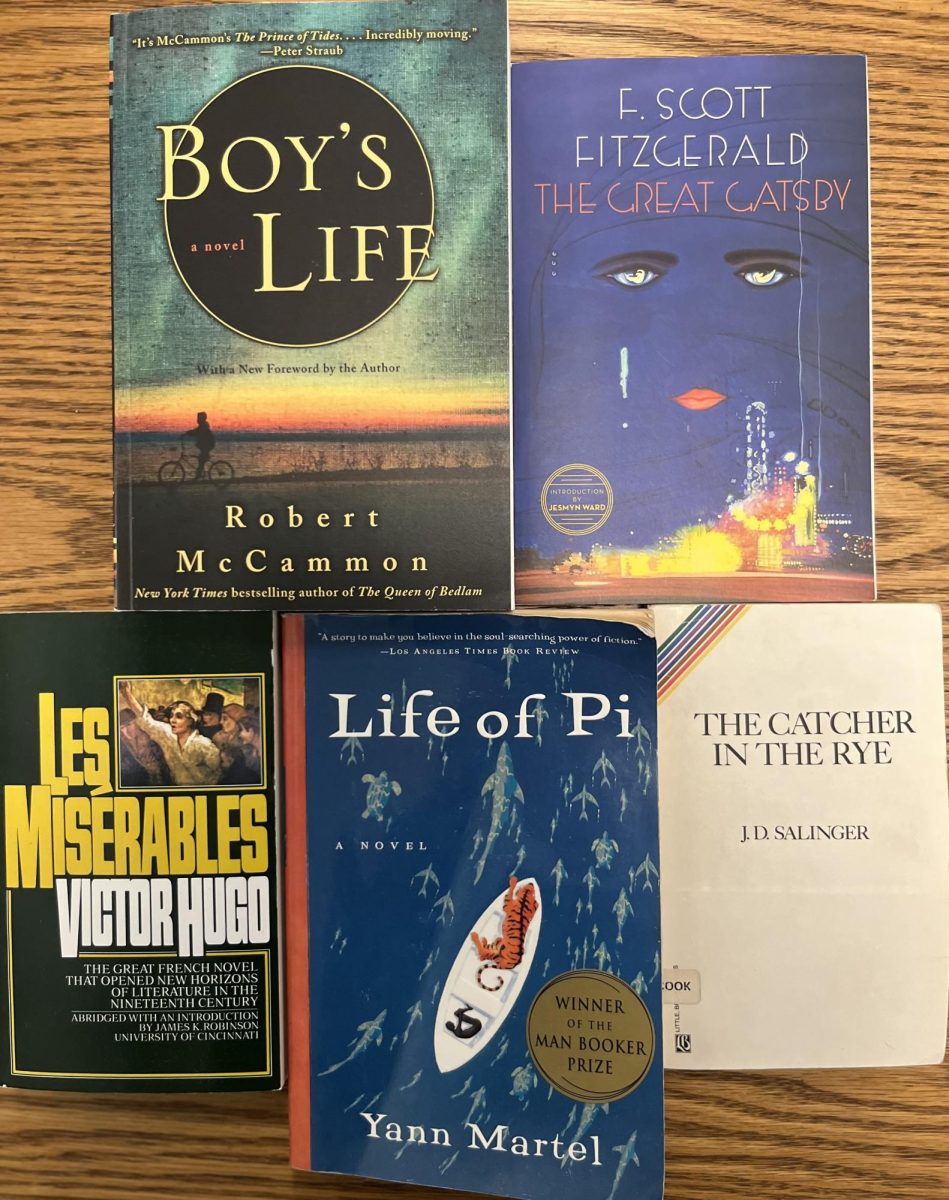The Rose Code by Katie Quinn is a historical fiction novel that follows an observant Beth, an ambitious Mab, and debutante Osla, who were recruited to work at Bletchley Park during World War II to break German codes. The story takes place during the 1940s, narrating their friendship and life as secret code breakers, and switches to 1947, when they are no longer friends and are split up across the globe due to a betrayal. Later they are joined together again by a mysterious letter urging them to uncover the traitor at Bletchley Park.
Quinn’s writing style has a hypnotic ability, keeping you engaged for a nearly 700-page book. Going back and forth between the two timelines makes it impossible to put the book down because you want to find out how these three best friends become enemies six years later.
She deserves all the praise when it comes to her attention to detail, writing about this part of World history that is often forgotten and ignored by many World War II fanatics. Bletchley Park, located in Buckinghamshire, England, was a government cryptological establishment that was used to decode German encryption. While most men were out fighting on the front line, a small number of women were also doing their duty. Two-thirds of the Bletchley Park population were women who were recruited for their brilliance in problem-solving skills. Together they worked in secrecy, solving encoded messages from the enemy.
Working at Bletchley Park doomed you to a life of secrecy, where not even the people who worked there could talk to each other about the nature of their work. The secrecy led to ruined relationships and a claustrophobic feeling of never being able to fully connect with anyone outside Bletchley Park.
The three girls split into three different groups and had a different job when it came to decoding the enemies’ messages. Despite being unable to share the specifics of their work with each other, they still bonded over being a part of something bigger than themselves.
Osla, Beth, and Mab are wonderfully well-developed characters who, despite their flaws, still make you fall in love with them. Osla, who is always dismissed as a dumb debutante, proves to be witty and intelligent despite it. I really enjoyed following a female character who is able to be girly but also very resourceful and witty. Mab, or Queen Mab, nicknamed by her friends after the iconic Shakespeare monologue, seems cold and calculating, but the more I got to know Mab, the more I understood her. While she comes across as calculating, she is really just determined to create a better life for herself.
My personal favorite character was Beth because at the start of the novel she was a meek young adult, doubtful of her own talents, but because of Bletchley Park, she finds confidence in herself and her gift in encrypting secret messages. Quinn masterfully brings her main female characters to life, showing that they are complex, feminine, and fiercely intelligent all at once.
The Rose Code also discusses powerful themes that I didn’t expect to find in a historical fiction novel. Themes of loyalty, sacrifice, and the cost of secrecy, which we discover throughout the experiences of the main characters. Quinn showed me that women were also a large part of the war effort, even if they had to keep it a secret for decades. We also see the emotional toll her characters face as the years go on because they aren’t able to tell anyone the truth.
One of my favorite moments in the book wasn’t even in the plot, but discovering that the leading characters were inspired by real women who were a part of Bletchley Park. While their experiences probably differed from Osla, Mab, and Beth, the reminder that Bletchley Park was a real place and was vital to World War II.
I know that I would have never read The Rose Code if it wasn’t for The St. Pius X Book Club selected this novel for our meeting in May, but I am glad that I read it because it opened me to new knowledge about World War II and to compelling female characters that had me rooting for them despite their mistakes. I would recommend this book to anyone who loves a good drama and World War II because this novel will stick with you long after the final page.



